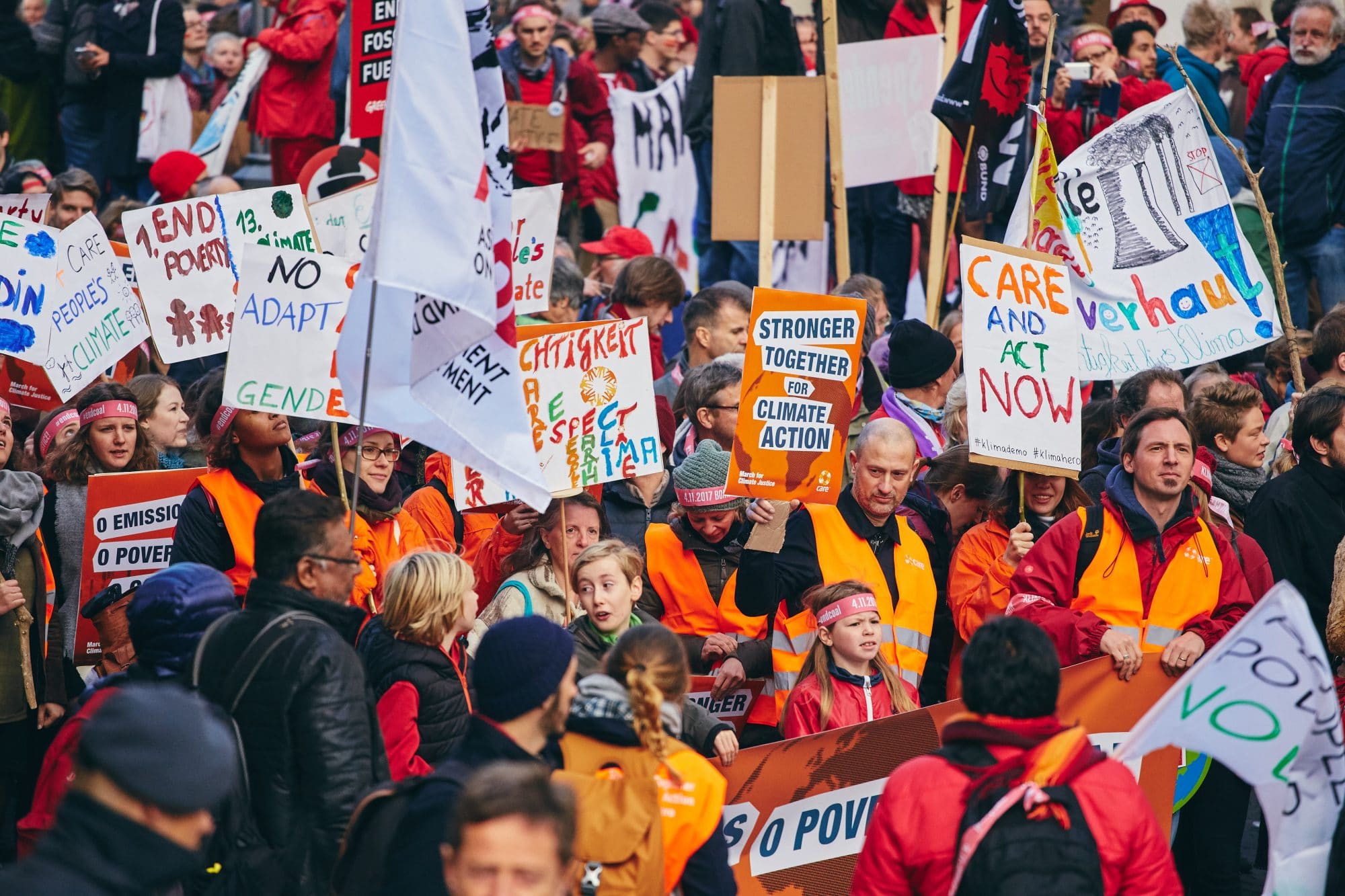Punching Below Their Weight
Monitoring the G7 support for adaptation and gender equality
Punching Below Their Weight
Monitoring the G7 support for adaptation and gender
equality
This report presents, for the first time, a comprehensive analysis of the finance provided by the G7 group, as the main causers of climate change and main providers of climate finance, to developing countries for climate change adaptation and to what extent it promotes gender equality. This analysis is based on the over 16,000 projects in the OECD database supported by the G7 in 2013-2016. The results show that there is an urgent need to increase financial support for climate change adaptation with much stronger gender equality efforts.
Providing financial support for adaptation to vulnerable developing countries is a core obligation for developed countries, and enshrined in the UN Framework Convention on Climate Change (UNFCCC), the Paris Agreement and the Sustainable Development Goals (SDGs). Yet, there is just over a year before the 2020 deadline for developed countries to mobilize $100 billion per year to address the needs of developing countries in confronting climate change, a commitment which is based on the UNFCCC and has been reaffirmed through the Paris Agreement and related decisions.
Gender inequality is a key driver of vulnerability to climate change impacts and other stressors. Investing in adaptation can promote gender equality, economic growth and stability, in line with the Paris Agreement’s Article 7.5 which all governments agreed to. With this report, CARE aims to contribute to raising the ambition in this crucial area for international cooperation, and to identifying who is among the leaders and who lags behind. The analysis also provides the basis for a set of main recommendations.
RECOMMENDATIONS
- The G7 must step up public finance for adaptation in developing countries to be at least 3 times 2016 levels by 2020. They must also achieve a 50/50 balance between adaptation and mitigation finance, in particular, by increasing support for projects with the principal adaptation objective (marker 2). Next steps towards these objectives should be announced at relevant G7 meetings and at COP24.
- G7 countries should increase efforts to promote gender equality through their bilateral climate finance (and well as in multilateral mechanisms) in a recipient-driven manner, so that by 2020 at least 20% of the projects coded as adaptation pursue gender equality as a principal objective (marker 2) and at least 80% as a significant objective (marker 1).
- All G7 countries should apply a more rigorous coding, where projects marked 2 clearly address the objectives of climate change adaptation and gender equality, respectively. This should also be reflected through more detailed project descriptions
- To promote good quality adaptation and gender equality approaches, G7 countries must increase support for the implementation of the UNFCCC Gender Action Plan adopted at COP23, particularly through capacity support for integrating gender equality in adaptation actions.
